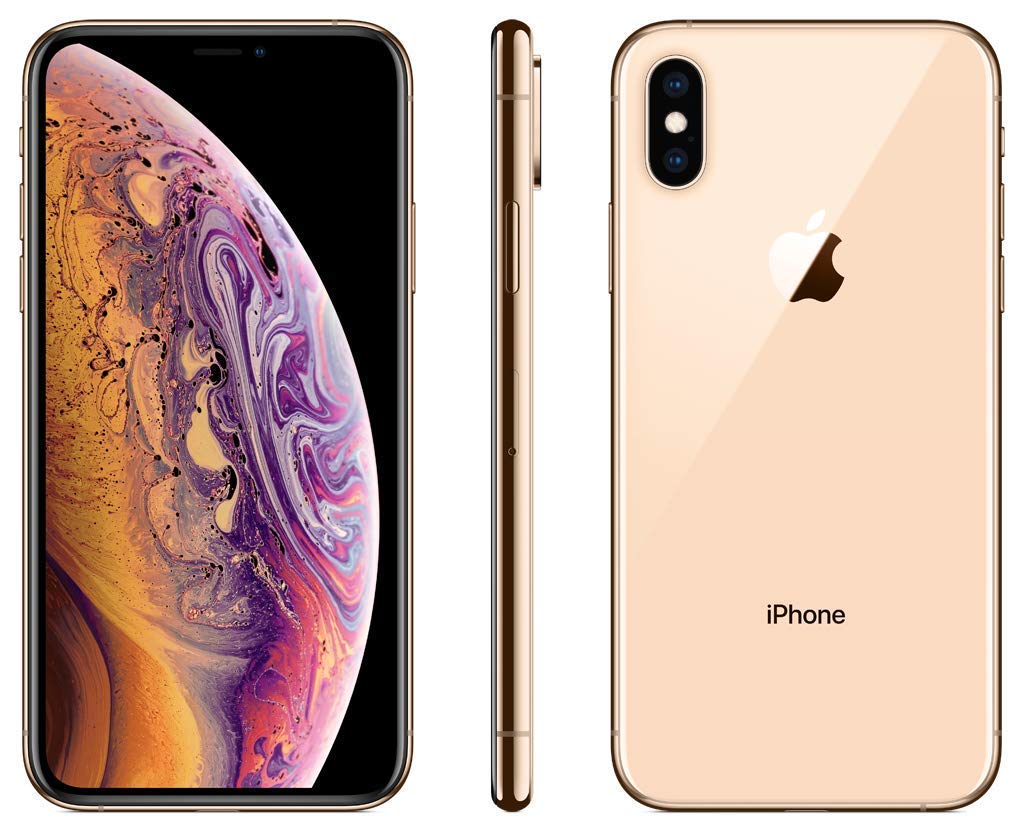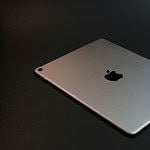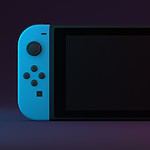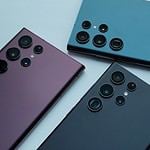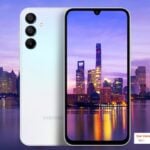The Apple iPhone XS marked a significant leap in smartphone technology when it launched. This flagship device boasts a powerful A12 Bionic chip, a stunning 5.8-inch OLED display, and dual 12-megapixel rear cameras for exceptional photography.
You’ll find the iPhone XS offers a premium experience with its sleek design and advanced features. It runs on iOS, providing access to a vast ecosystem of apps and services. The device also includes Face ID for secure authentication and supports wireless charging.
Let’s take a closer look at the key specifications of the iPhone XS:
| Feature | Specification |
|---|---|
| Display | 5.8″ OLED |
| Processor | Apple A12 Bionic |
| Main Camera | Dual 12 MP |
| Selfie Camera | 7 MP |
| Storage | 64/256/512 GB |
| Battery | 2658 mAh |
Design and Build
The iPhone XS boasts a sleek and premium design. It combines elegant aesthetics with robust construction. The device offers a balance of style and durability that Apple users have come to expect.
Dimensions and Weight
The iPhone XS measures 143.6 mm in height, 70.9 mm in width, and 7.7 mm in thickness. This compact form factor makes it comfortable to hold and easy to slip into your pocket. The device weighs 177 grams, striking a nice balance between a solid feel and lightweight portability.
Here’s a quick breakdown of the iPhone XS dimensions:
| Dimension | Measurement |
|---|---|
| Height | 143.6 mm |
| Width | 70.9 mm |
| Thickness | 7.7 mm |
| Weight | 177 g |
These compact dimensions allow for easy one-handed use. The weight distribution feels balanced, enhancing the overall user experience.
Materials and Colors
Apple uses premium materials for the iPhone XS construction. The device features a glass front and back with a stainless steel frame. This combination gives the phone a luxurious look and feel.
The iPhone XS comes in three sophisticated colors:
- Gold
- Silver
- Space Gray
The glass back enables wireless charging. It also adds a touch of elegance to the overall design. The stainless steel frame provides structural integrity and a premium finish.
Durability
The iPhone XS boasts an IP68 rating for water and dust resistance. This means you can submerge the device in up to 2 meters of water for 30 minutes without damage.
The front and back glass panels use a custom formula for added strength. Apple claims this glass is the most durable ever used in a smartphone. However, it’s still advisable to use a case for extra protection.
The stainless steel frame adds to the phone’s overall durability. It helps protect against dents and scratches from everyday use. The iPhone XS can withstand accidental drops better than its predecessors.
Display and Visuals
The iPhone XS boasts a cutting-edge display with impressive visual features. Its screen technology and resolution deliver a stunning viewing experience for users.
Screen Technology
The iPhone XS features a Super Retina OLED display that offers vibrant colors and deep blacks. This technology enables HDR10 and Dolby Vision support, enhancing the visual quality of compatible content.
The screen’s brightness reaches up to 625 nits, ensuring good visibility even in bright outdoor conditions. Apple’s 3D Touch technology is integrated into the display, allowing for pressure-sensitive interactions.
Resolution and Size
The iPhone XS sports a 5.8-inch screen with a resolution of 1125 x 2436 pixels. This results in a pixel density of approximately 458 ppi, providing sharp and crisp visuals.
The display has a 19.5:9 aspect ratio, offering a wider viewing area for content consumption and multitasking. Its screen-to-body ratio is about 82.9%, maximizing the display size while keeping the device compact.
| Feature | Specification |
|---|---|
| Display Type | Super Retina OLED |
| Size | 5.8 inches |
| Resolution | 1125 x 2436 pixels |
| Pixel Density | 458 ppi |
| HDR Support | HDR10, Dolby Vision |
| Brightness | 625 nits (max) |
The iPhone XS display is protected by scratch-resistant glass, adding durability to its premium visual features.
Performance
The iPhone XS boasts impressive processing power and graphics capabilities. Its advanced chipset and ample memory enable smooth multitasking and enhanced app performance.
Chipset and Memory
The iPhone XS features Apple’s A12 Bionic chip, a powerful processor that delivers exceptional speed and efficiency. This 7-nanometer chip contains a six-core CPU and a four-core GPU, providing significant improvements over its predecessor.
The A12 Bionic’s two high-performance cores are up to 15% faster than the A11, while using up to 40% less power. Its four efficiency cores use up to 50% less power than those in the A11.
Memory-wise, the iPhone XS comes with 4GB of LPDDR4X RAM, a step up from the 3GB found in the iPhone X. This increase in RAM allows for better app management and smoother multitasking.
Graphics and Processing
The A12 Bionic’s enhanced GPU delivers outstanding graphics performance. It’s up to 50% faster than the previous generation, enabling more realistic gaming experiences and improved augmented reality applications.
Apple’s Neural Engine, integrated into the A12 Bionic, sees a significant upgrade. It can now perform up to 5 trillion operations per second, compared to 600 billion in the A11. This boost enhances machine learning tasks, face recognition, and other AI-powered features.
Geekbench scores highlight the iPhone XS’s impressive performance:
| Benchmark | iPhone XS Score |
|---|---|
| Geekbench 4 Single-Core | 4,821 |
| Geekbench 4 Multi-Core | 11,551 |
These scores place the iPhone XS among the fastest smartphones available, showcasing its capability to handle demanding tasks with ease.
Camera and Video
The iPhone XS boasts impressive camera capabilities for both photography and videography. Its advanced dual-lens system and powerful front-facing camera offer high-quality imaging and diverse shooting options.
Main Camera Specifications
The iPhone XS features a dual 12MP rear camera setup. The wide-angle lens has an f/1.8 aperture, while the telephoto lens offers an f/2.4 aperture. This combination allows for improved low-light performance and enhanced depth-of-field effects.
Smart HDR technology enhances image quality by capturing multiple frames and merging them for optimal exposure. The camera system supports optical image stabilization, reducing blur from hand movements.
For video enthusiasts, the iPhone XS can record 4K video at up to 60 fps. It also offers 1080p HD video recording at 30 or 60 fps. Slow-motion video capture is available at 1080p with 240 fps.
| Feature | Specification |
|---|---|
| Main Camera | Dual 12MP |
| Aperture | f/1.8 (wide), f/2.4 (telephoto) |
| Video Recording | 4K at 60 fps, 1080p at 240 fps |
Front Camera Features
The front-facing camera on the iPhone XS is a 7MP TrueDepth system. It supports Portrait mode and Portrait Lighting, allowing you to take studio-quality selfies with various lighting effects.
Face ID, Apple’s facial recognition technology, uses the TrueDepth camera for secure authentication. This system projects and analyzes over 30,000 invisible dots to create a detailed depth map of your face.
The front camera can record 1080p HD video at 30 or 60 fps. It also supports features like Animoji and Memoji, adding a fun element to your video calls and messages.
Frequently Asked Questions
The iPhone XS boasts impressive specs and features. Let’s explore some common questions about its camera, battery, and performance.
What are the camera specifications of the iPhone XS?
The iPhone XS features a dual 12MP rear camera system. It includes a wide-angle lens and a telephoto lens. The wide-angle camera has an f/1.8 aperture, while the telephoto lens has an f/2.4 aperture.
The front-facing TrueDepth camera is 7MP with an f/2.2 aperture. It supports Portrait mode and Portrait Lighting effects.
What is the battery capacity of the iPhone XS in mAh?
The exact battery capacity of the iPhone XS is 2658 mAh. This provides up to 14 hours of talk time or 12 hours of internet use.
The device supports fast charging and can reach up to 50% charge in about 30 minutes with an 18W adapter or higher.
What are the differences between the iPhone XS and iPhone XS Max?
The main difference is screen size. The iPhone XS has a 5.8-inch display, while the XS Max has a 6.5-inch display.
The XS Max also has a larger battery capacity, offering longer usage times. Both models share the same camera systems, processor, and other core features.
Are there any notable differences between the iPhone XS and iPhone 11?
The iPhone 11 introduced several upgrades over the XS:
- A13 Bionic chip (vs A12 in XS)
- Dual-lens camera with Night mode
- Improved water resistance (2 meters for 30 minutes)
- Longer battery life
The iPhone XS has an OLED display, while the iPhone 11 uses LCD technology.
Can the iPhone XS support 5G network connectivity?
No, the iPhone XS does not support 5G connectivity. It’s limited to 4G LTE networks.
5G support was introduced in the iPhone 12 series, released in 2020. The XS can still provide fast data speeds on 4G LTE networks.
How does the iPhone XS perform in terms of processing power?
The iPhone XS uses Apple’s A12 Bionic chip. This 7-nanometer chip offers:
- 6-core CPU
- 4-core GPU
- 8-core Neural Engine
It provides smooth performance for most tasks and handles graphics-intensive games well. The A12 chip was a significant improvement over its predecessor in terms of energy efficiency and processing speed.
| Feature | iPhone XS Specification |
|---|---|
| Processor | A12 Bionic chip |
| RAM | 4GB |
| Storage | 64GB, 256GB, or 512GB |
| Display | 5.8-inch Super Retina HD |
| Main Camera | Dual 12MP wide and telephoto |
| Front Camera | 7MP TrueDepth |
| Battery | 2658 mAh |

